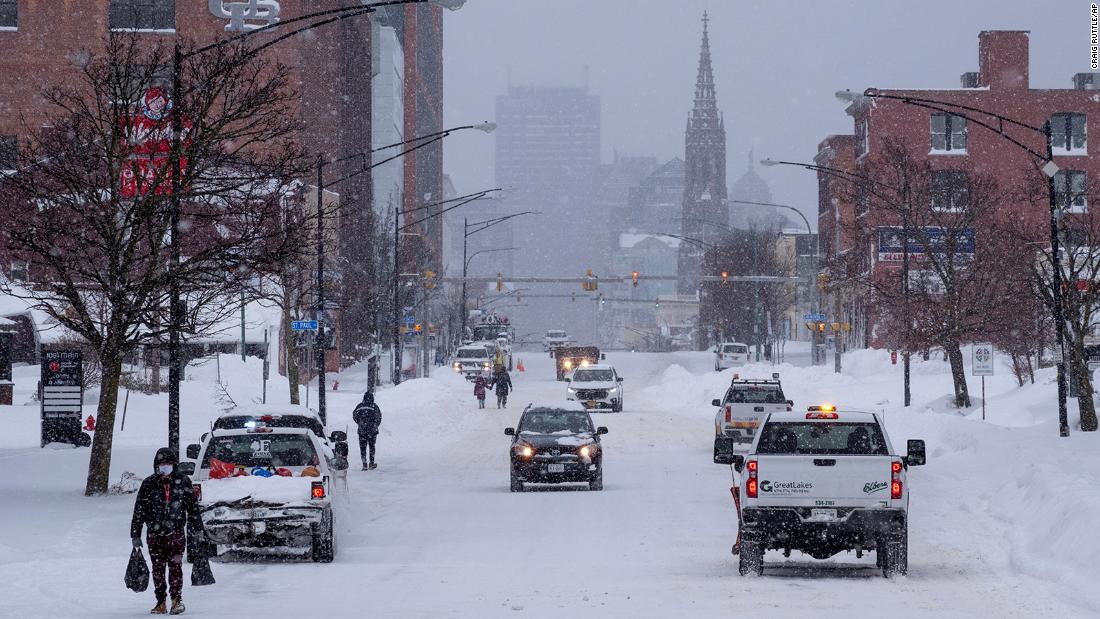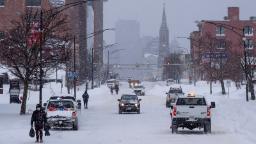

With freezing temperatures still forecasted for parts of the US, doctors are warning about the dangers of the bitter cold.
Many of us feel the effects in our toes and fingertips before elsewhere in the body. This happens as your body works to protect your vital organs from the cold, Dr. Suzanne Salamon, associate chief of clinical programs at Beth Israel Deaconess Medical Center in Boston, previously told CNN.
“The blood vessels in all different parts of the body will constrict,” she said. “They’ll get smaller to try to preserve heat.”
“What the body tries really hard to do is to protect the most important organs, which are the ones deep inside: the heart and brain and lungs,” she said. “The body tries to keep those warm by redirecting heat from the fingers and toes inward, so the blood vessels in the fingers and toes get really small, and not enough blood goes through them.”
This is important for the body to do — and to do quickly — because wintry weather has been associated with health risks for heart attacks, asthma symptoms, frostbite and hypothermia.
“You always hear about people going out and shoveling snow and having a heart attack,” Salamon said, explaining that this is partly because cold weather can act to narrow the blood vessels, and that can put stress your heart.
“The most worrisome health effect from cold exposure is hypothermia, which can cause damage to vital organs, including the heart, nervous system and kidneys. In extreme cases, death can occur. This often is a result of abnormal cardiac rhythms,” said Dr. Jeahan Colletti, an emergency medicine specialist at the Mayo Clinic in Rochester, Minnesota, previously told CNN.
What you can do: An important risk-reducing measure hinges on wardrobe and making sure you dress in layers that are not too tight. The air that’s trapped in between each layer helps keep you war, according to Salamon.
“You really need to have looser sweaters, shawls if you’re sitting inside, to try to layer up. It helps to have a ski mask to protect your ears and your nose,” she said. “If you get wet, like if you’re out playing in snow or shoveling snow, take off wet clothes, because the wet clothes really make it worse. They make things colder. … Boots should be waterproof.”
Preventive measures not only involve dressing for the cold but also avoiding too many cocktails in cold weather, said Colletti, of the Mayo Clinic. Alcohol “causes dilatation of the body’s blood vessels, increasing heat loss,” she said.
